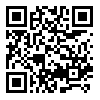2- Islamic Azad University, Esfahan (Khorasgan) Branch
Organizational citizenship behaviors in the workplace are among the most important positive behaviors. This has attracted the attention of researches during the past decades. Based on the latest evidence, these behaviors may lose their voluntary and optional nature because they are considered as positive and useful and therefore there may be too much emphasis placed upon them. In this study it was assumed that job satisfaction is a mediator in the relationship between compulsory citizenship behaviors and organizational citizenship behaviors. In accordance with the purpose of study, 212 employees of a public sector organization were selected using simple random sampling and they were asked to respond to Compulsory Citizenship Behaviors (CCBQ), Organizational Citizenship Behaviors (OCBQ) and Job Satisfaction (JSQ) Questionnaires. Results indicated that there was a negative and significant relationship between compulsory citizenship behaviors and job satisfaction, but there was no significant relationship between compulsory citizenship behaviors and organizational citizenship behaviors. Results of structural equation modeling (SEM) revealed that, job satisfaction could indeed be considered to be a mediator variable in the relationship between compulsory citizenship behaviors and organizational citizenship behaviors (with regards to individual, organizational and total scores). Results of this study suggests that compulsory citizenship behaviors are able to reduce organizational citizenship behavior. It is suggested that this occurs because compulsory citizenship behaviors may actually reduce job satisfaction.
Received: 2015/10/5 | Revised: 2019/01/28 | Accepted: 2016/06/13 | Published: 2016/10/13
| Rights and permissions | |
 |
This work is licensed under a Creative Commons Attribution-NonCommercial 4.0 International License. |



